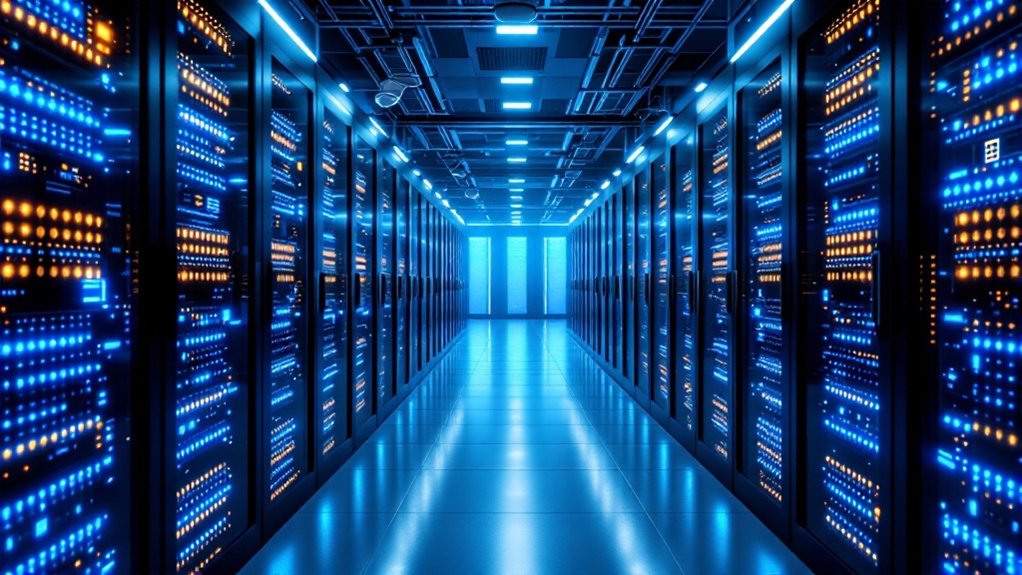Data center protection is a critical concern that demands a strategic and thorough approach. It necessitates the integration of advanced technologies, regular audits, and an informed workforce, all geared towards fortifying the defenses against both external and internal threats. Adopting such measures not only safeguards critical data but also guarantees its availability and integrity. As we explore the nuances of data center protection, let’s consider how these strategies can greatly improve the security landscape.
Understanding the Importance of Data Center Protection
In the digital age, the significance of data center protection cannot be understated. Data centers, as the heart of information technology, house critical and sensitive data integral to the operations of businesses and organizations. Failure to protect these data centers can result in catastrophic losses, both regarding financial and reputational damage. Furthermore, in an era where cybercrime is rampant, the risk of data breaches has skyrocketed, making data center protection not just a necessity, but a strategic imperative. Yet, it is not just about preventing breaches. Data center protection also encompasses maintaining data integrity, ensuring system availability, and facilitating disaster recovery. Understanding this importance can guide organizations in developing a thorough and robust data center protection strategy. Moreover, data management services provided by data centers ensure efficient handling of information, which is crucial for preventing security breaches.
Evaluating Potential Threats to Your Data Center
Before devising an extensive protection strategy, it is crucial to assess potential threats to your data center. The first step involves identifying both internal and external risks. Internal threats may include equipment failure, human error, or malicious insiders. External threats encompass cyber-attacks, such as malware, ransomware, data breaches, and denial of service attacks, as well as natural disasters. Another point to reflect on is the vulnerability of the data center’s physical location. This evaluation helps determine the level of risk associated with each identified threat. By understanding the nature of these threats and their potential impact, a company can prioritize which areas need the most immediate attention and build a thorough, effective protection strategy. Additionally, implementing security measures can significantly bolster the defenses of your data center against these risks.
Implementing Robust Data Center Security Measures
Having evaluated the potential threats, the next stage is to fortify the data center using robust security measures. Such measures may include advanced firewalls, intrusion detection systems, and strong encryption to safeguard sensitive information. Physical security is equally critical, involving restricted access to the data center, surveillance cameras, and alarm systems. Proactive measures, such as threat hunting and penetration testing, can identify vulnerabilities before they are exploited. A multi-layered security approach, comprised of technology, people, and processes, is advocated to create a resilient defense. However, the implementation of these measures should be carefully planned, taking into account the specific needs and constraints of the organization, to guarantee peak effectiveness without compromising operational efficiency. Additionally, participating in data center webinars can provide valuable insights on emerging threats and best practices for security.
The Role of Regular Data Center Audits and Maintenance
Why are regular audits and maintenance essential for a data center? They are vital for identifying vulnerabilities, ensuring optimal performance, and maintaining the integrity of the data. Regular audits allow for a thorough evaluation of the data center’s security measures, spotlighting areas that may be at risk. This process typically includes checks on physical security, system configurations, and access controls.
Meanwhile, maintenance activities involve routine checks and updates on hardware and software, ensuring they function effectively and are protected against potential threats. Regular maintenance can also help in the timely detection and rectification of issues, preventing costly downtime and data loss. Fundamentally, regular audits and maintenance form the backbone of effective data center protection. These processes are essential in ensuring the data center remains secure, reliable, and efficient. Therefore, being methodical in data management is crucial to successfully implement these strategies.
Adopting Advanced Technologies for Enhanced Data Center Protection
As the complexity of cyber threats increases, the adoption of advanced technologies for improved data center protection becomes essential. Innovative solutions such as artificial intelligence (AI), machine learning algorithms, and blockchain can bolster security measures. AI and machine learning can predict and identify potential threats, providing proactive protection. Meanwhile, blockchain technology guarantees secure, transparent transactions, reducing the risk of data breaches. Incorporating these technologies allows for the development of an adaptive security architecture, enhancing the ability to respond to evolving threats. However, organizations must guarantee they have the necessary skills and resources to implement and manage these advanced technologies. Furthermore, prioritizing AI adoption is crucial for enhancing overall security effectiveness. Ultimately, adopting advanced technologies is a critical move towards thorough data center protection.
Frequently Asked Questions
What Are the Cost Implications of Implementing Advanced Data Center Protection Measures?
The cost implications of implementing advanced data center protection measures can be significant. However, these expenses are generally offset by the reduction of potential losses from data breaches, equipment failures, and service disruptions.
How Does Data Center Protection Affect Business Continuity and Disaster Recovery Planning?
Enhanced data center protection directly influences business continuity and disaster recovery planning by minimizing potential downtime. It guarantees uninterrupted service, mitigates data loss risks, and enhances system resilience, thereby giving businesses a competitive edge.
What Are the Necessary Certifications for a Data Center Protection Specialist?
The necessary certifications for a data center protection specialist typically include Certified Information Systems Security Professional (CISSP), Cisco Certified Network Associate (CCNA), and Certified Data Centre Professional (CDCP), among others. These bolster credibility and expertise.
Can Data Center Protection Measures Be Outsourced to a Third-Party Service Provider?
Yes, data center protection measures can be outsourced to a third-party service provider. These providers possess specialized expertise and tools to safeguard data centers from a variety of potential threats and vulnerabilities.
How Does Data Privacy Legislation Influence Data Center Protection Strategies?
Data privacy legislation greatly influences data center protection strategies by mandating strict compliance rules. These laws dictate how data should be stored, processed, and protected, shaping the security measures data centers must implement.
Conclusion
Implementing effective data center protection requires a thorough strategy, from advanced technology adoption to regular audits and maintenance. Cultivating awareness among employees about potential threats is equally important. With the integration of innovative technologies like AI and machine learning, data centers can proactively detect and respond to cyber threats, ensuring the availability and integrity of essential data. Therefore, data center protection is an vital aspect of any organization’s cybersecurity framework.






